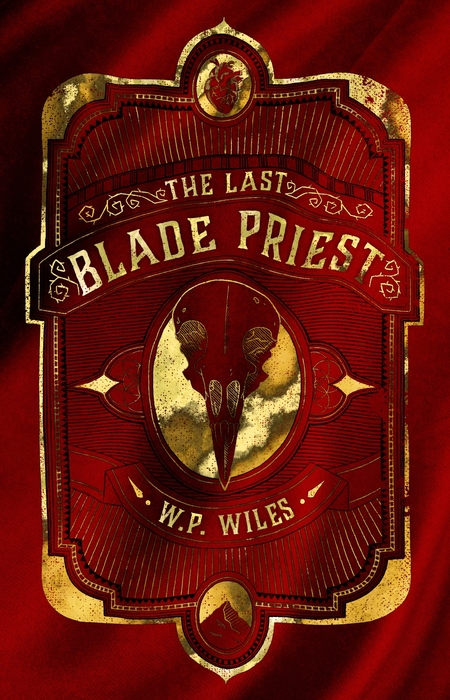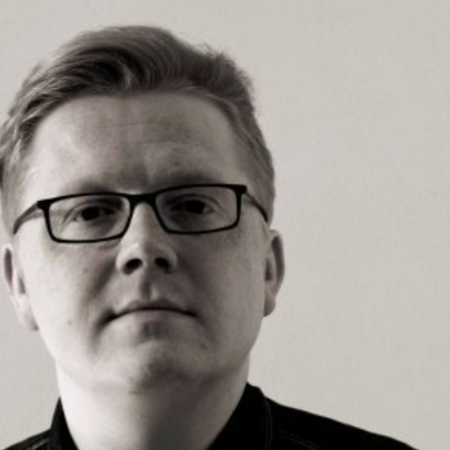Vivid.
That’s the word that strikes most often as you dive into and are gloriously consumed by The Last Blade Priest by W. P. Wiles, a novel that is, in every conceivable respect, a story well told, vividly realised and epically alive.
A fantasy story grounded in the earthy fallibility of human nature, The Last Blade Priest sets itself in a far off series of medieval lands where empires wage war for influences, a great religion seeks to enslave as much as enlighten, as is the way of purist belief systems, and where two wholly different men, master builder Inar and blade priest Anton are about to have their destinies rent fully asunder.
Theirs is a tale of fates addled and reshaped out of all recognition, a tale you might say is as old as humanity itself which has always struggled with the best laid tales coming hard up against the vagaries of an unforgiving world, and it is riveting from the word go when we meet Inar, a master builder in the religiously adherent Kingdom of Mishig-Tenh, who is seeking to make a way for himself in a place where suspicion surrounds him like a pesky cloud of flies in the summer.
He is, alas, the son of a traitor, his father, who had also been a master builder, accused of colluding with the avaricious League of Free Cities (the League), a power on the rise that claims noble intentions and lofty ideals but which is already drifting towards corruption by power, which in its absolute form, as we all know, corrupts absolutely.
“Without knowing who the strangers were – without even setting eyes on them – Anton found he was glad of them. Franj had been right, they were a help. They would wander into any traps or ambushes first, likely revealing their position. What Anton and Franj needed to do was to close the distance between themselves and the strangers without revealing themselves. Now, they were the pursuers.” (P. 281)
As this brilliantly engaging novel begins, the League has consumed Mishig-Tenh and is on well on its way to mopping up what remains of the fading empire of Miroline, a force that once stood mightily across the lands under its control but which is, despite the legendary events that underpin it, in terminal dotage.
The Last Blade Priest is a story rich not simply in characters who seem to spring forth from the page, sword or spear ready to confront their foe, and be assured there are foes aplenty on every page and around every craterous mountain pass, but in world building so vitally good and lavishly formed that there is a tactile permanence and solidity to every twist and turn in this compelling tale.
Every place that Inar goes, who is drafted into helping the League by the merite Anzola, a woman of great means, influence and even greater intelligence and political instinct – in a proto-empire that prides itself on meritocracy, the old rules apply of money, influence and power, making the League no different to its predecessors and contemporaries, no matter what it may believe about itself – and in which the other main protagonist, the blade priest of the title, Anton, a man trained since childhood to sacrifice men to his religion (something he secretly hates) finds himself, feels as real as the ground beneath your feet.
There is vividness to the realisation of the Mountain on which a sacred but divided religion centres itself, and through which occultist magic percolates in contravention of all its one-god beliefs, to the resolute backwardness of Mishig-Tenh, and to the Hidden Lands where it turns out a great long banished evil is stirring in ways too horrible for anyone in the well-ordered worlds of Miroline and the League can even imagine.
It’s at this point that The Last Blade Priest, already one of those standout reads that is worth queueing at a bookstore at midnight to purchase – and which you must, by every reading god in existence, commence reading immediately – really comes ferociously and immersively alive.
While Wiles assembles many of the tropes you might expect of a fantasy novel of this epic quality and scope, it’s what he does with them that is truly gobsmackingly, enchantingly good.
He takes the tropes and cliches and richly, enliveningly reimagines them, from enemies that defy everything Tolkien taught us, and in terrifying fashion, to power struggles that wield sword and iron but which pivot on older impulses yet, and characters whose trajectories do not match where you might think they will end up.
Nothing is cut and dried in this book, which wears magical influences and an imaginatively unreal worldview like a colourfully rendered cloak, which makes The Last Blade Priest feel like, for all its readily-identified influences, unlike anything you have ever read before.
That is its greatest gift, really; it takes some standard ingredients, throws in a healthy understanding, and perhaps well-deserved cynicism about the gloriously imperilling inconsistencies of the human race, and its marred creations such as religions, empires and capitalist intent, and runs with it, infusing each and every page with a knowingness about the state of the world and a thoroughly unique way of viewing and talking about it.
“Inar knew at once what he was looking at: a screen, almost a mobile palisade, that should shield attackers approaching a wall from view. It would not offer much lasting protection, but would deny the Brink’s defenders clear targets. This would be his protection. It was better than nothing, for sure, but he had more faith in darkness and fog.” (P. 450)
There is so much about The Last Blade Priest that draws you in and keeps you engaged mind, body and soul throughout.
It’s one of those reads that feels all-encompassing in the very best of ways, a far-from-surface read that provides lots of action and intrigue but which also knows how to deep dive into the human psyche and see what drives a narrative that, while it barely pauses for breath, is possessed of a rich intimacy and emotionality that reassures you over and over that here is an author who understands the perfect and necessary marriage of action and humanity.
Some writers miss this, serving up epic fantasy without characters that matter, but not Wiles, whose storyline is already a thousand times richer than its already superlative self because it bothers to remember that people are at the heart of the thrilling, realpolitik-infused story it weaves.
You really care about Inar and Anton, Duna and Anzola, all of whom are far from perfect but richly, enthrallingly human, people who find themselves swept up in events far beyond their control or imagining, who have to keep pivoting like crazy just to stay somewhat in the game, which they do magnificently and in a way that will endear them powerfully to you.
The Last Blade Priest is an absolute gem – stunningly well-written with emotional resonance aplenty bound into a fantastical tale that is also groundedly, confrontingly human (and not in several key ways), vividly alive with characters who pop off the page and mean something, to you and the story they inhabit, and a world so well realised that you often feel like you could step into it, although if you do, tread wisely for trouble lies ahead and who knows where it may lead?

